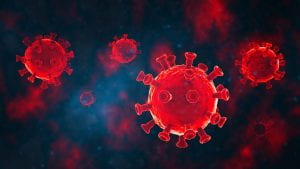
Over centuries, the human body has developed a natural rhythm that uses biological and environmental factors to determine when to sleep and eat. But continued advances in technology—starting with the light bulb, all the way to on-demand entertainment—allow people to ignore these natural rhythms. Circumstances such as caring for an infant, working a night shift, or staying out late at a party can also disrupt regular sleep patterns. Researchers refer to these disruptions as “social jet lag.” [Read more…]


 More than four years after the first humans became infected with the SARS-CoV-2 virus, scientists understand more than ever before about how COVID-19 affects people. Beyond respiratory symptoms, COVID can lead to nausea, vomiting, diarrhea, rashes, and even eye infections. We’ve also learned that people can experience long COVID, which involves continued symptoms for months or even years after they initially get sick.
More than four years after the first humans became infected with the SARS-CoV-2 virus, scientists understand more than ever before about how COVID-19 affects people. Beyond respiratory symptoms, COVID can lead to nausea, vomiting, diarrhea, rashes, and even eye infections. We’ve also learned that people can experience long COVID, which involves continued symptoms for months or even years after they initially get sick.  Thousands of people now speak to their smart devices to make their grocery lists. Students are more likely to type out notes in class than write them down. And we often type or dictate calendar reminders into our smartphones instead of writing them on a wall calendar. In short, people across the globe and in a wide variety of settings primarily use digital devices to record the things they want to remember.
Thousands of people now speak to their smart devices to make their grocery lists. Students are more likely to type out notes in class than write them down. And we often type or dictate calendar reminders into our smartphones instead of writing them on a wall calendar. In short, people across the globe and in a wide variety of settings primarily use digital devices to record the things they want to remember. 


 Nearly 42 percent of adults in the U.S. are considered obese, up from 30 percent in 2000.
Nearly 42 percent of adults in the U.S. are considered obese, up from 30 percent in 2000.
 It’s not an exaggeration to say that America runs on coffee—some 400 million cups a day, according to
It’s not an exaggeration to say that America runs on coffee—some 400 million cups a day, according to 

